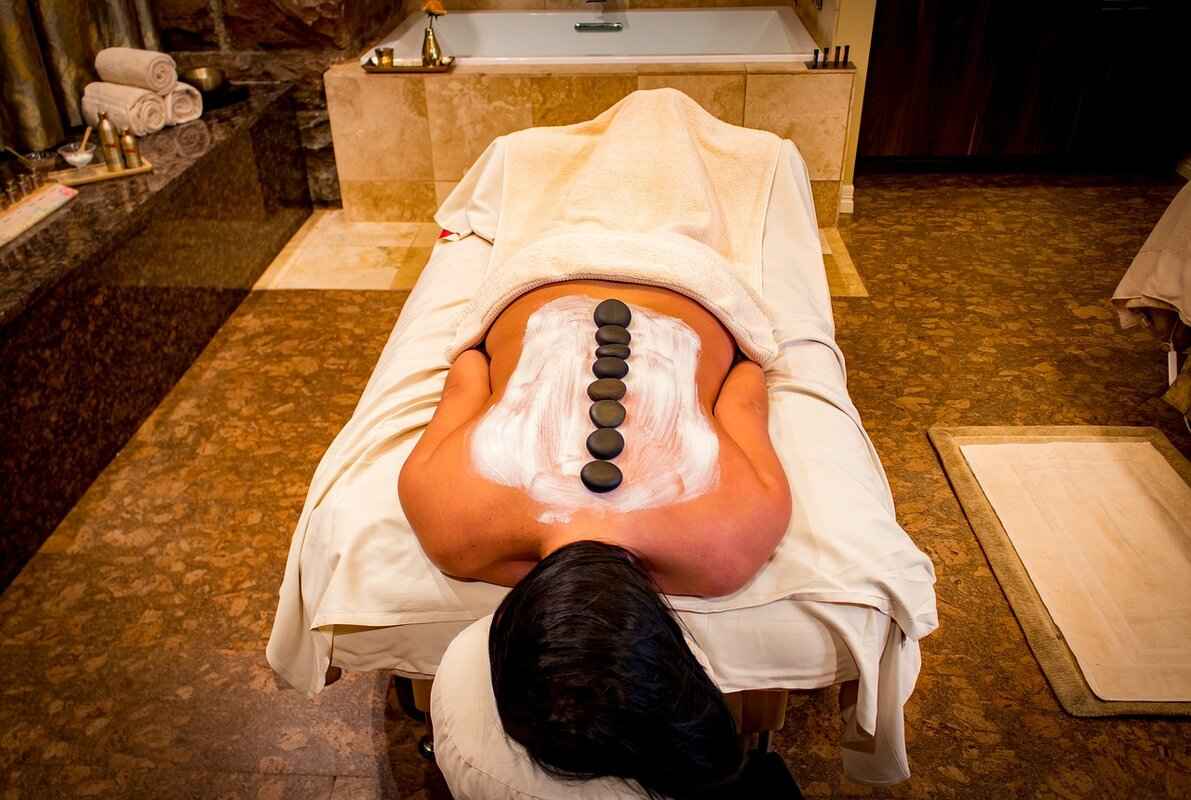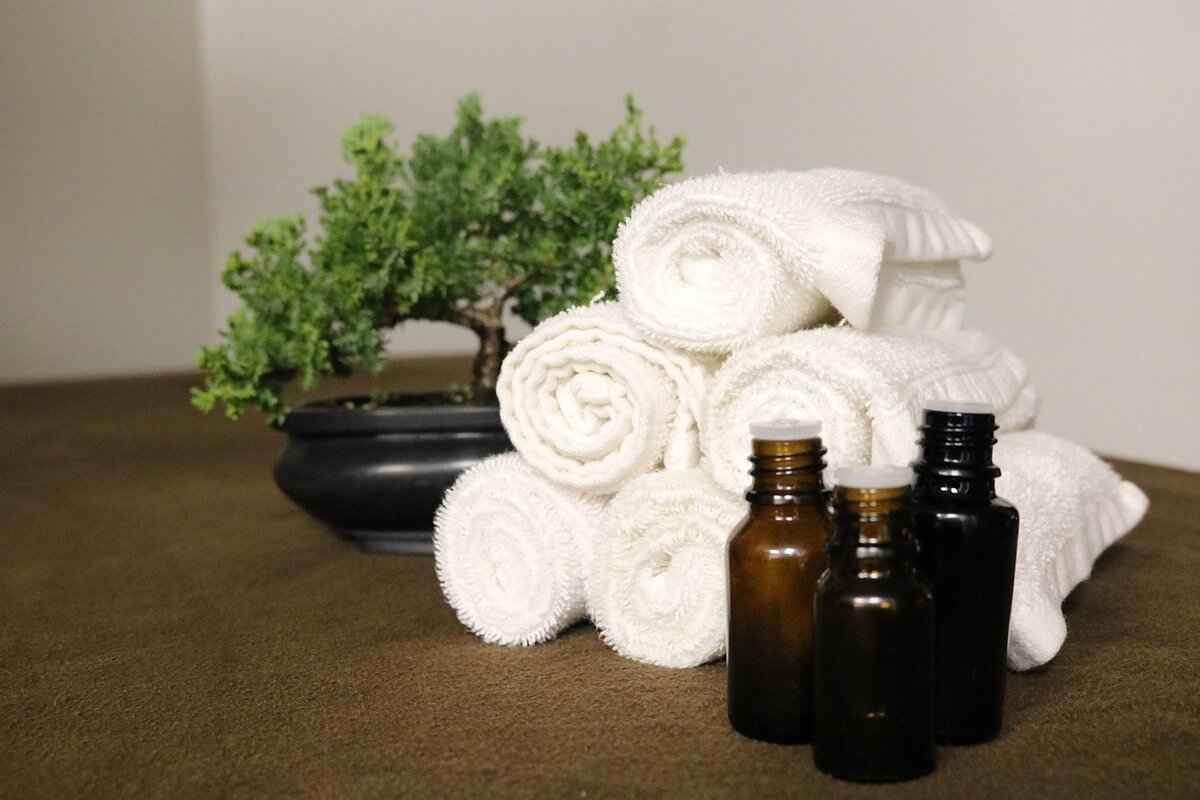This article delves into the numerous health benefits associated with regular visits to Asian massage spas, highlighting their impact on physical, mental, and emotional wellness. By exploring various massage techniques and their unique advantages, we aim to provide a comprehensive understanding of how these practices can enhance overall well-being.
Understanding Asian Massage Techniques
Asian massage encompasses a variety of techniques, including acupressure, Thai massage, and Shiatsu. Each method offers distinct benefits:
- Acupressure: Targets specific pressure points to alleviate pain and promote relaxation.
- Thai Massage: Combines stretching and rhythmic compression to enhance flexibility and energy flow.
- Shiatsu: Utilizes finger pressure along meridians to balance energy and improve health.
The Physical Benefits of Massage Therapy
Regular massage therapy can significantly improve physical health by:
- Alleviating Muscle Tension: Massage helps to release tight muscles, providing relief from chronic pain conditions.
- Improving Circulation: Enhanced blood flow aids in nutrient delivery and waste removal, promoting vitality.
- Boosting Flexibility: Regular sessions can enhance flexibility and range of motion, beneficial for athletes and active individuals.
Stress Reduction and Mental Clarity
Massage therapy is renowned for its ability to reduce stress and anxiety, which contributes to:
- Improved Mood: The release of endorphins during massage can elevate mood and reduce feelings of anxiety.
- Better Sleep Quality: Regular sessions can promote deeper, more restorative sleep patterns.
Cultural Significance of Asian Massage Practices
Understanding the cultural roots of these practices reveals their holistic approach to health, emphasizing the balance of body, mind, and spirit.
Choosing the Right Spa for Your Needs
Selecting an appropriate Asian massage spa requires consideration of:
- Services Offered: Evaluate the range of treatments available.
- Therapist Qualifications: Ensure therapists are certified and experienced.
- Ambiance: The spa environment should promote relaxation and comfort.
Integrating Massage into Your Wellness Routine
Incorporating regular massage into your wellness regimen can significantly enhance your overall health and promote a balanced lifestyle. It is a valuable investment in self-care that pays dividends in both physical and emotional well-being.

Understanding Asian Massage Techniques
Asian massage is a rich tapestry of ancient practices that have been refined over centuries, each technique offering its own unique advantages for physical, mental, and emotional well-being. Understanding these techniques can help individuals choose the right type of massage to meet their specific needs.
- Acupressure: This technique involves applying pressure to specific points on the body, known as acupoints. It is designed to stimulate the body’s natural healing process, relieve tension, and improve energy flow. Acupressure is particularly effective for alleviating headaches, muscle pain, and digestive issues.
- Thai Massage: Often described as a combination of yoga and massage, Thai massage utilizes stretching and deep tissue techniques. Practitioners use their hands, knees, and feet to move the recipient into various positions, promoting flexibility and relieving muscle tension. This method not only enhances physical health but also encourages relaxation and mental clarity.
- Shiatsu: Originating from Japan, Shiatsu massage employs finger pressure on meridians, similar to acupressure. This technique focuses on restoring balance within the body, alleviating stress, and enhancing overall vitality. Shiatsu can be particularly beneficial for individuals dealing with chronic pain and fatigue.
Each of these techniques offers distinct benefits that contribute to a holistic approach to health. By incorporating Asian massage into a regular wellness routine, individuals can experience significant improvements in their physical health, emotional stability, and overall quality of life. Furthermore, understanding the nuances of these techniques allows for a more personalized massage experience, tailored to individual needs and preferences.
In summary, exploring the various Asian massage techniques provides valuable insights into their unique benefits, helping individuals make informed decisions about their wellness journeys.

The Physical Benefits of Massage Therapy
Massage therapy is not just a luxury; it is a vital practice that can significantly enhance your physical well-being. By integrating regular massage sessions into your health regimen, you can experience a multitude of benefits that go beyond mere relaxation.
Muscle Relaxation and Pain Relief
One of the primary advantages of massage therapy is its ability to alleviate muscle tension. Techniques such as deep tissue and Swedish massage specifically target tight muscles, helping to release knots and reduce discomfort. This can be especially beneficial for individuals suffering from chronic pain conditions, including back pain, arthritis, and migraines. Regular sessions can lead to a noticeable decrease in pain levels and an overall improvement in mobility.
Improved Circulation
Massage therapy enhances blood circulation, which is crucial for overall health. Improved circulation facilitates the delivery of essential nutrients and oxygen to cells while also aiding in the removal of metabolic waste. This boost in circulation can lead to increased energy levels and a heightened sense of vitality.
Enhanced Flexibility and Mobility
For those engaged in sports or physical activities, regular massage can significantly improve flexibility and range of motion. Techniques like Thai massage, which incorporates stretching, can help maintain joint health and prevent injuries. Enhanced flexibility not only benefits athletes but also individuals with physically demanding jobs, allowing for greater ease in daily tasks.
Stress Reduction and Mental Clarity
Massage therapy is well-known for its stress-reducing properties. The calming effects of massage can lower cortisol levels, promoting relaxation and mental clarity. This not only contributes to emotional well-being but also enhances focus and productivity in daily life.
In summary, the physical benefits of massage therapy are profound and multifaceted. By committing to regular sessions, you can experience significant improvements in muscle relaxation, circulation, flexibility, and mental clarity, making it an invaluable component of a holistic wellness routine.
Muscle Relaxation and Pain Relief
Massage therapy is a powerful tool for achieving muscle relaxation and relieving pain. One of the primary benefits of massage is its ability to target muscle knots and tension that often lead to chronic pain. Conditions such as back pain, arthritis, and headaches can significantly impact daily life, but regular massage can provide much-needed relief.
When muscle knots form, they can restrict blood flow and lead to discomfort. Massage techniques, particularly those found in Asian practices, focus on manipulating the muscles and connective tissues, which helps to release these knots. This release not only alleviates pain but also promotes better circulation, allowing oxygen and nutrients to reach the affected areas more effectively.
Moreover, different types of massage, such as Shiatsu and Thai massage, incorporate stretching and pressure techniques that enhance flexibility and mobility. These methods are particularly beneficial for athletes or individuals with physically demanding jobs, as they help to maintain muscle health and prevent injuries.
In addition to physical relief, the psychological benefits of massage should not be overlooked. The soothing nature of massage can lead to a reduction in stress levels, which often exacerbate physical pain. By promoting relaxation, massage helps to break the cycle of tension and pain, creating a more holistic approach to health.
Ultimately, integrating regular massage therapy into your wellness routine can lead to long-term benefits for both physical and mental well-being. Whether you are seeking relief from chronic pain or simply looking to unwind, massage therapy offers a comprehensive solution to enhance your quality of life.
Improved Circulation
Enhanced blood circulation is a pivotal benefit of massage therapy that significantly contributes to overall health and vitality. As skilled therapists manipulate the body’s soft tissues, they stimulate blood flow, which is essential for delivering oxygen and nutrients to cells while facilitating the removal of metabolic waste products. This process is not only vital for physical health but also plays a crucial role in maintaining energy levels and promoting recovery from injuries.
One of the primary mechanisms through which massage enhances circulation is by relaxing the muscles and reducing tension. When muscles are tight, they can constrict blood vessels, impeding blood flow. Through various techniques, such as Swedish massage and deep tissue therapy, therapists can effectively alleviate this tension, allowing blood to flow more freely.
Furthermore, improved circulation can lead to several specific health benefits, including:
- Enhanced Nutrient Delivery: With increased blood flow, essential nutrients reach vital organs and tissues more effectively, supporting overall bodily functions.
- Accelerated Healing: Enhanced circulation promotes quicker recovery from injuries and surgeries by supplying the necessary nutrients and oxygen needed for tissue repair.
- Reduced Inflammation: Improved blood flow can help reduce inflammation, which is often a contributing factor to chronic pain and various health conditions.
- Boosted Immune Function: A well-circulated body can better transport white blood cells, which are crucial for fighting off infections and diseases.
In addition to these physical benefits, the act of receiving a massage itself can stimulate the release of endorphins, which further enhances feelings of well-being and relaxation. This combination of physical and emotional benefits makes regular massage therapy a valuable addition to anyone’s wellness routine.
In summary, the impact of massage therapy on circulation is profound, leading to improved health outcomes and a greater sense of vitality. Regular sessions can be a key component in maintaining not only physical health but also emotional and mental well-being.
Enhanced Flexibility and Mobility
Regular massage therapy is a powerful tool for enhancing flexibility and mobility. This is particularly advantageous for individuals engaged in sports or physically demanding occupations. By incorporating massage into your routine, you can experience significant improvements in your body’s ability to move freely and efficiently.
One of the primary ways that massage enhances flexibility is through the relaxation of tight muscles and connective tissues. When muscles are tense, they restrict movement and can lead to discomfort or injury. Massage techniques, such as deep tissue and trigger point therapy, specifically target these areas of tension, promoting relaxation and allowing for a greater range of motion.
Moreover, regular massage encourages the production of synovial fluid, which lubricates joints and facilitates smoother movement. This is essential for athletes who rely on their joints to perform optimally. Enhanced joint mobility not only improves athletic performance but also reduces the risk of injuries, making massage a vital component of any training regimen.
In addition to physical benefits, the psychological effects of massage cannot be overlooked. The relaxation response triggered by massage can help reduce mental stress, which often manifests as physical tension. By alleviating this stress, individuals may find it easier to engage in physical activities, further promoting flexibility and mobility.
For those with physically demanding jobs, regular massage can also help prevent repetitive strain injuries. By maintaining flexibility and mobility, workers can perform their tasks more efficiently and with reduced risk of injury. This not only enhances productivity but also contributes to overall job satisfaction.
In summary, the benefits of regular massage therapy extend beyond mere relaxation. By improving flexibility and mobility, it empowers athletes and workers alike to perform at their best, making it an essential practice for anyone looking to enhance their physical capabilities.
Stress Reduction and Mental Clarity
In today’s fast-paced world, where daily challenges can lead to overwhelming stress and anxiety, massage therapy has emerged as a vital tool for enhancing mental clarity and emotional stability. This ancient practice, rooted in various cultures, offers a multitude of benefits that extend beyond mere relaxation.
One of the primary advantages of massage therapy is its ability to reduce stress levels. As skilled therapists work on the body, they help to release built-up tension, allowing the mind to unwind. This process is not just about physical relief; it also triggers a cascade of positive biochemical reactions in the body. For instance, massage increases the production of serotonin and dopamine, neurotransmitters that play a crucial role in enhancing mood and reducing feelings of anxiety.
Moreover, the calming effects of massage can lead to improved mental clarity. When stress is alleviated, individuals often experience enhanced focus and concentration. This is particularly beneficial for those who struggle with work-related stress or have demanding responsibilities. By incorporating regular massage into one’s routine, individuals can create a sanctuary for their minds, allowing for better decision-making and creativity.
Additionally, massage therapy promotes better sleep quality, which is essential for mental health. Quality sleep is crucial for cognitive function, emotional regulation, and overall well-being. When individuals experience restful sleep, they are more likely to wake up feeling refreshed, ready to tackle the day ahead.
In summary, the benefits of massage therapy extend far beyond physical relaxation. By reducing stress and enhancing mental clarity, it serves as a powerful ally in achieving emotional well-being. Regular visits to a qualified therapist can be a transformative experience, paving the way for a healthier, more balanced life.

Emotional and Psychological Benefits
Regular visits to an Asian massage spa offer a multitude of benefits that extend beyond the physical realm, significantly impacting emotional stability and mental health. These therapeutic sessions serve as a sanctuary, allowing individuals to escape the stresses of daily life and reconnect with their inner selves.
Enhancing Emotional Well-being
One of the most profound effects of massage therapy is its ability to enhance emotional well-being. The soothing techniques used in Asian massage, such as Shiatsu and Thai massage, promote deep relaxation and help release pent-up emotions. This emotional release can lead to a greater sense of calm and contentment, making it easier to navigate life’s challenges.
Reducing Anxiety and Stress
Stress and anxiety are prevalent in today’s fast-paced world. Regular massage therapy has been shown to lower levels of the stress hormone cortisol while simultaneously boosting the production of serotonin and endorphins. This combination not only alleviates feelings of anxiety but also enhances overall mood, providing a natural remedy for those struggling with mental health issues.
Improving Sleep Patterns
Quality sleep is essential for emotional and psychological health. Many individuals find that after a massage session, they experience improved sleep patterns. The relaxation induced by massage helps to quiet the mind, making it easier to fall asleep and stay asleep, which is critical for maintaining mental clarity and emotional balance.
Boosting Self-esteem and Body Image
Regular visits to an Asian massage spa can also positively influence self-esteem and body image. The nurturing touch of a skilled therapist can help individuals feel more connected to their bodies, fostering a sense of appreciation and acceptance. This newfound connection can lead to improved self-confidence and a more positive outlook on life.
In summary, the emotional and psychological benefits of regular visits to an Asian massage spa are profound and far-reaching. By investing time in this self-care practice, individuals can achieve greater emotional stability, reduced anxiety, and improved overall mental health.
Boosting Mood and Reducing Anxiety
Massage therapy is not only a luxurious indulgence but also a powerful tool for enhancing mental health. One of the most significant benefits of receiving regular massages is the stimulation of endorphin production. Endorphins are the body’s natural feel-good hormones that help elevate mood and create a sense of well-being.
When you engage in massage therapy, your body responds by releasing these endorphins, which can lead to a noticeable improvement in your emotional state. This natural boost can help alleviate feelings of anxiety and combat symptoms of depression, making it an effective complementary treatment for individuals struggling with mental health issues.
Moreover, the physical touch involved in massage therapy can foster a sense of connection and comfort, which is essential for emotional healing. The calming environment of a massage spa, combined with skilled techniques, creates a sanctuary where stress and worries can fade away. As you relax, your body goes through a series of physiological changes, including:
- Decreased cortisol levels: The stress hormone cortisol can contribute to feelings of anxiety. Massage has been shown to lower cortisol levels, promoting relaxation.
- Enhanced serotonin levels: Alongside endorphins, massage can increase serotonin, another neurotransmitter that plays a vital role in mood regulation.
- Improved overall well-being: The combination of physical relaxation and emotional release during massage contributes to a more positive outlook on life.
In addition to these immediate benefits, regular visits to an Asian massage spa can create long-term improvements in mental health. Clients often report feeling more resilient to stress and better equipped to handle daily challenges. By integrating massage into your wellness routine, you can cultivate a healthier mind and body.
Improved Sleep Quality
Achieving is a goal for many individuals, and regular massage therapy can play a significant role in this pursuit. Sleep is essential for overall health, and disturbances can lead to a myriad of issues, including fatigue, irritability, and decreased cognitive function. By incorporating massage into your routine, you may find that your sleep patterns become more regular and restorative.
Massage therapy promotes relaxation by reducing levels of cortisol, the stress hormone, in the body. When cortisol levels decrease, the body is better able to enter a state of calm, making it easier to fall asleep and stay asleep throughout the night. Additionally, massage stimulates the production of serotonin, a neurotransmitter that helps regulate mood and sleep cycles, further enhancing the quality of your rest.
Moreover, various massage techniques, such as Swedish massage and deep tissue massage, can alleviate physical discomfort that may interfere with sleep. By addressing muscle tension, pain, and stress, these therapies create a more conducive environment for relaxation and sleep. For instance, individuals suffering from chronic pain conditions may find that regular massage reduces their discomfort, allowing them to drift off more easily at night.
In addition to physical benefits, the mental clarity and emotional stability gained from regular massage can also contribute to improved sleep. A calm mind is less likely to ruminate over daily stresses, allowing for a more peaceful transition into sleep. The soothing environment of a massage spa, combined with the therapeutic touch of a skilled therapist, can create a holistic experience that nurtures both body and mind.
Ultimately, integrating massage therapy into your wellness routine not only enhances your physical and emotional health but also paves the way for deeper and more restorative sleep. As you explore the benefits of massage, consider making it a regular part of your self-care regimen to achieve the restful nights you deserve.

Cultural Significance of Asian Massage Practices
Asian massage practices are deeply rooted in centuries of tradition, reflecting a holistic approach to health and wellness that emphasizes the connection between body, mind, and spirit. These practices are not only about physical manipulation but also involve an understanding of energy flow and balance within the body.
Historically, Asian cultures have viewed health as a state of harmony, where physical ailments are often linked to emotional and spiritual imbalances. For instance, traditional Chinese medicine (TCM) incorporates concepts such as Qi (life energy) and the balance of Yin and Yang. This perspective is fundamental in various massage techniques, including Tuina and Shiatsu, which aim to restore this balance through targeted pressure points.
- Acupressure: This technique applies pressure to specific points along the body’s meridians, promoting energy flow and alleviating pain.
- Thai Massage: Combining yoga-like stretches with deep tissue work, Thai massage enhances flexibility and releases tension.
- Shiatsu: This Japanese technique uses finger pressure on points to stimulate the body’s natural healing processes.
The cultural significance of these practices extends beyond mere physical benefits. They embody a philosophy that prioritizes mental clarity and emotional stability. For example, the ritualistic aspects of these massages often include calming environments, soothing music, and the use of essential oils, all of which contribute to a comprehensive sensory experience that promotes relaxation and mindfulness.
Furthermore, as global interest in wellness grows, many people are seeking out these traditional practices not just for their physical benefits but also for their cultural richness and the profound insights they offer into the interconnectedness of health and wellness. This growing appreciation fosters a deeper understanding of how ancient wisdom can inform modern health practices.
In summary, the cultural roots of Asian massage practices reveal a holistic approach that integrates physical, mental, and emotional well-being, offering valuable insights for anyone interested in enhancing their health and wellness journey.

Choosing the Right Spa for Your Needs
Choosing the right Asian massage spa is a crucial step in ensuring a fulfilling and rejuvenating experience. With numerous options available, it’s essential to consider several factors that can significantly impact your overall satisfaction and wellness.
- Services Offered: Different spas provide various types of massages and wellness treatments. It’s important to identify what specific services you are looking for, such as Shiatsu, Thai massage, or acupressure. Some spas may also offer additional services like facials, aromatherapy, or reflexology, which can enhance your overall experience.
- Therapist Qualifications: The expertise of the therapists is paramount. Look for spas that employ licensed and experienced professionals. Many reputable spas will display their therapists’ qualifications and training, allowing you to make an informed choice. This is particularly important if you have specific health concerns or conditions that require specialized care.
- Ambiance and Cleanliness: The atmosphere of the spa plays a significant role in your relaxation and comfort. A serene and clean environment can enhance your overall experience. Pay attention to the decor, lighting, and cleanliness of the facilities. A welcoming ambiance can significantly contribute to the therapeutic effects of the massage.
- Customer Reviews and Reputation: Researching customer feedback can provide valuable insights into the quality of service at a spa. Websites and social media platforms often feature reviews that can help you gauge the experiences of previous clients. A spa with a strong reputation for customer satisfaction is more likely to meet your expectations.
- Pricing and Packages: Consider your budget when selecting a spa. Some spas offer packages or membership deals that can provide better value for regular visits. Ensure that the pricing aligns with the quality of service offered, as the cheapest option may not always be the best choice.
By carefully evaluating these factors, you can select an Asian massage spa that not only meets your needs but also enhances your overall well-being. Taking the time to choose wisely will ensure that your visits are enjoyable and beneficial to your health.
Evaluating Therapist Qualifications
When seeking a massage, is of utmost importance. Ensuring that a therapist possesses the necessary credentials and experience can greatly influence the overall quality and safety of your massage experience. Here are some key factors to consider:
- Licensing and Certification: Always check if the therapist is licensed and certified by a recognized body. This ensures they have undergone the required training and adhere to industry standards.
- Experience: Inquire about the therapist’s experience, particularly in the specific type of massage you are interested in. A seasoned therapist will be more adept at addressing individual needs and concerns.
- Specializations: Different therapists may specialize in various techniques, such as deep tissue, Shiatsu, or Thai massage. Understanding their specialization can help you select a therapist who meets your specific health goals.
- Client Reviews: Reading reviews from previous clients can provide insight into a therapist’s effectiveness and professionalism. Look for feedback on their technique, demeanor, and the overall atmosphere of the spa.
- Consultation: A good therapist will often offer a consultation before the session. This allows you to discuss any health concerns or preferences, ensuring that the treatment is tailored to your needs.
It’s also essential to trust your instincts. A comfortable and safe environment is crucial for relaxation, and feeling at ease with your therapist can enhance the overall experience. By taking the time to evaluate qualifications and experience, you can ensure that your massage therapy is not only effective but also a positive and rejuvenating experience.
Understanding Different Massage Styles
When it comes to massage therapy, understanding the various styles available is essential for selecting the treatment that aligns with your personal health goals. Each massage technique offers unique benefits that cater to different needs, making it crucial to familiarize yourself with these options.
- Swedish Massage: This is one of the most popular styles, characterized by long, flowing strokes. It is ideal for relaxation and stress relief, making it perfect for those new to massage therapy.
- Deep Tissue Massage: This technique focuses on the deeper layers of muscle and connective tissue. It is particularly beneficial for chronic pain and tension, targeting specific areas of discomfort.
- Thai Massage: Combining acupressure and yoga-like stretching, Thai massage promotes flexibility and energy flow. It is excellent for those looking to enhance their overall physical performance.
- Shiatsu: Originating from Japan, Shiatsu involves applying pressure to specific points on the body. This style is effective for balancing energy and relieving stress.
- Hot Stone Massage: Utilizing heated stones, this massage style enhances relaxation and alleviates muscle tension. It is particularly soothing for individuals with stiff muscles.
By exploring these diverse styles, you can identify which technique resonates with your wellness objectives. Whether you seek relaxation, pain relief, or enhanced flexibility, understanding the nuances of each massage type allows you to make informed decisions for your health journey.
Moreover, many spas offer customized treatments that combine elements from various styles, providing a tailored experience that meets your specific needs. Engaging in discussions with your therapist can also help in identifying the most suitable approach for your individual circumstances.
In conclusion, being well-informed about different massage styles empowers you to choose the right treatment. This not only enhances your overall experience but also contributes significantly to achieving your personal health goals.

Integrating Massage into Your Wellness Routine
In today’s fast-paced world, integrating regular massage into your wellness routine has become more than just a luxury; it is a vital component of maintaining overall health and well-being. Regular visits to an Asian massage spa can significantly contribute to a balanced lifestyle, offering numerous benefits that extend beyond mere relaxation.
Massage therapy is not only about indulgence; it plays a crucial role in promoting physical, mental, and emotional wellness. By incorporating massage into your routine, you can experience:
- Enhanced Physical Health: Regular massage helps alleviate muscle tension, improve flexibility, and reduce chronic pain. Techniques such as Shiatsu and Thai massage are particularly effective in addressing physical discomfort.
- Improved Mental Clarity: The calming effects of massage therapy can lead to reduced stress levels, promoting better focus and mental clarity. This is essential for navigating the challenges of daily life.
- Emotional Stability: Regular sessions can stimulate the production of endorphins, which are natural mood lifters. This can help combat feelings of anxiety and depression, enhancing overall emotional health.
To maximize the benefits of massage therapy, it is important to choose the right type of massage that aligns with your personal health goals. For instance, if you are looking for relief from muscle tension, deep tissue massage may be ideal. Conversely, if relaxation is your primary goal, Swedish massage might be more suitable.
Moreover, establishing a consistent schedule for massage therapy is key. Aim for at least one session per month, or more frequently if your lifestyle is particularly stressful or physically demanding. This regularity can help maintain the benefits over time, making it a worthwhile investment in self-care.
In summary, by integrating regular massage into your wellness routine, you are not only investing in your physical health but also nurturing your mental and emotional well-being. This holistic approach can lead to a more balanced and fulfilling life.
Frequently Asked Questions
- What are the main benefits of regular visits to an Asian massage spa?
Regular visits can enhance physical, mental, and emotional wellness. You’ll experience muscle relaxation, improved circulation, reduced stress, and even better sleep quality!
- How do different Asian massage techniques vary in their benefits?
Each technique, like acupressure, Thai massage, and Shiatsu, offers unique advantages. For example, acupressure focuses on energy points for pain relief, while Thai massage emphasizes stretching for flexibility.
- Can massage therapy help with chronic pain conditions?
Absolutely! Massage therapy is known to alleviate muscle tension and release knots, providing significant relief from chronic pain conditions such as back pain and arthritis.
- How often should I schedule a massage for optimal benefits?
For the best results, consider scheduling a massage at least once a month. However, if you’re dealing with stress or muscle tension, weekly sessions might be more beneficial.
- What should I look for when choosing an Asian massage spa?
Look for qualified therapists, a variety of services, and a relaxing ambiance. Reading reviews can also help you find the right fit for your needs.














